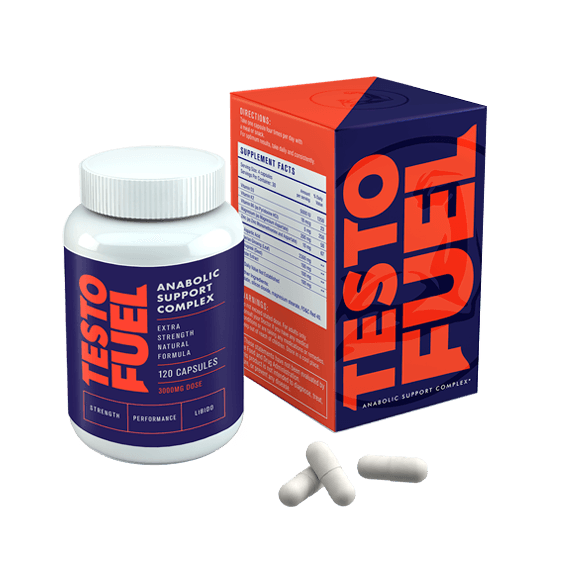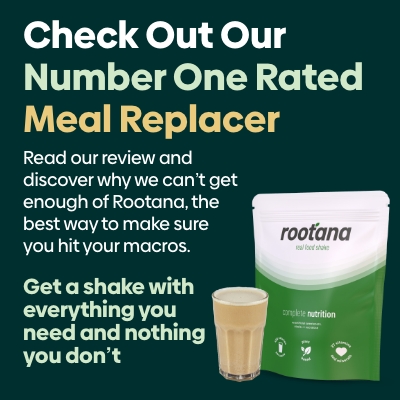3 Month Muscle Transformation Workout Plan
This fat shredding, muscle transformation plan will give you all the tools you need to carve out a great physique… in as little as 3 months.
Back in the day you had rippling abs, vascular arms and a barrel-like chest. Or it might have been the athletic shape and sexy curves that brought you those second glances.
Either way, we’re here to get that back for you.
In just 3 months you’ll have dropped a jean size, ditched the excess weight and built your confidence higher than you ever though imaginable. If larger muscles or an athletic physique is what you’re after; you’re in the right place.
Whether it’s to improve your appearance and ramp up performance. If it’s to boost muscle mass, fitness or simply just to be confident in your beach clothes…
This is the muscle transformation plan for you.
What does this program cover?
| Goal: | Muscle building, fat loss |
| Aimed at: | Beginner and intermediate |
| Program duration: | 12 weeks |
| Workout duration: | 30-60 minutes |
| Equipment needed: | Barbell, dumbbell, kettlebell, body weight |
Getting Started on Your Muscle Transformation Plan
When it comes to a successful muscle transformation you have to think about your starting point.
If your fitness is low or you’ve piled on the pounds over the last few months, fat loss needs to be your number one priority.
It might even be that you lack muscle and have minimal excess weight that’s brought you here.
Either way, that’s what this transformation plan is designed to:
- Build muscle, improve strength and optimize athleticism
- Shred excess weight and tighten problem areas
- Boost fitness, stamina and endurance
Use calories to your transformation advantage
Before we talk about using training to optimize your physique we need to look at your diet. While the old saying “you can’t out-train a bad diet” might not be strictly true, one thing is for sure; it’s damned hard to.
Calories control what happens to your weight.
If you work hard in the gym but over-consume food you’ll not lose weight or fat. If you’re trying to bulk up but struggle to get enough energy in your body you just won’t trigger muscle growth.
Why is calorie intake so important when you’re on a muscle transformation plan?
Calories provide the fuel that your body needs to function. But it only needs so much before it stores the extra as fat.
If you consume more calories than you need, you’ll store the extra energy as adipose tissue in your fat cells. That’s the bottom line.
It’s kind of like having too much cash in your pockets and deciding to put the extra in the bank. Your body won’t throw away any excess funds – but it will store them for later.
This is called an energy surplus or positive energy balance.
If you want to maximize muscle gain then you need that extra energy to build some new muscle cells. Instead of being stored as fat, it’ll get sent to your muscles instead.
Okay, a tiny bit might get stored as fat, but to really get muscular it’s what you’ll need to do – particularly if you’re a thin guy with no muscle mass.
A calorie surplus of around 20% on top of maintenance works well.
And if you’re not sure how to work out your maintenance calories, check out the calorie counter at the bottom of this article.
On the other hand, a negative energy balance – what’s called a calorie deficit – is vital for fat loss.
It’s only when you burn more energy off each day than you put in your body that your fat cells will release the ‘cash from the bank’ in terms of fat.
A deficit of anywhere between 20-40% from maintenance will suit fat loss on a 3-month muscle transformation program. This provides a nice balance between energy needed for workouts, but still tapping into your fat stores to make a fatty acid transaction.
Key Points:
- Focusing on calorie intake is a priority when you’re taking part in a muscle transformation plan.
- To maximize muscle gain without piling on too much fat you should aim for a calorie surplus of around 20%.
- To optimize fat loss you should pitch for a calorie deficit of 20-40%.
Build Muscle and Drop Body Fat at the Same Time
The so called holy grail of body transformation is the body recomposition. This refers to the process of building muscle and shredding body fat simultaneously.
And if you’ve read that previous section on calories this might seem impossible. We told you that in order to build muscle you needed a surplus on energy. But that to lose fat you had to be in a deficit.
It’s contradictory.
But…
If you read carefully though, we said that calorie manipulation optimizes results.
So if you want all-out muscle mass gains and don’t mind a small increase in body fat then a surplus was the way forward.
And if you just wanted to shred fat over 3 months then a deficit was your best route.
But what if you kind of want both?
Body recomposition and muscle transformation – using strength training to optimize gains
The process of building muscle while burning body fat isn’t easy. It’s not for everyone.
But the results can be phenomenal.
Emphasizing strength training during a calorie deficit helps to promote muscle protein synthesis. This is simply the rate at which your body builds new muscle cells.
So even when you have limited energy from you diet, you can still build muscle.
Okay, you might not have the energy you’d bring to the table if you were hitting the gym with a calorie surplus, but with clever training you’ll see muscle transformation results quickly.
Even in a deficit.
It’s all about the correct muscle transformation program…
- Using big, compound exercises maximizes productivity and results.
- Let your calorie deficit take care of excess fat, and strength training to boost protein synthesis.
- Limit high-volume training and cardio to avoid burn-out.
- Keep sessions short and sharp preserves energy.
By focusing your attention on heavy workouts with low volume you’ll maintain lean mass while cutting.
If you’re a beginner or coming back from a long break from training you’ll build a considerable amount of muscle.
But maybe not as much if you’re already in decent shape.
It also suits those with a fair amount of excess fat as you don’t need to be as aggressive with your deficit to trigger a recomposition effect.
Note: the law of diminishing returns suggests that body recomposition suits those with lower muscle mass and higher body fat. If you’re already muscular and lean, the muscle transformation process might not be as rapid.
Key Point:
- You can build muscle and drop fat with a moderate deficit, particularly if you’re a beginner.
- Strength training can help to boost muscle protein synthesis, even in a weight cut.
- Body recomposition training really suits those that are beginners or overweight.
The Muscle Transformation Workout: How Does the Plan Work?
You’ve got 3 months to put a real dent in your training.
With some hard work, motivation, and the right tools you’ll be able to transform your body by shredding fat and boosting lean mass.
To achieve this we’ve split your workouts into 3 distinct phases.
You’ll hit the ground running with the first block of training, and then increase the intensity as you progress through to phase 2.
This way of ‘periodizing‘ your training means that you’re always adapting how you train. And it caters for your new and improving fitness levels.
Here’s how it works:
Phase 1: focusing on getting lean with HIRT
4 weeks long
In this phase you’ll be blasting your body fat with some pretty tough strength circuits built around the high-intensity resistance training (HIRT) model.
The emphasis isn’t so much on how much muscle you can build, but instead you’ll be optimizing the way in which your body diverts energy away from fat stores and into protein synthesis.
The main focus is on fat loss and muscle conditioning (it acts as a primer for the next phase).
The workouts are slightly higher in volume than phase 2 and the way it’s structured means you’ll get a cardio effect too.
But aren’t you supposed to avoid high volume training while in a deficit?
In the first 3-4 weeks of a cut you’ll be absolutely fine going with slightly higher volume. HIRT workouts avoid localized fatigue, increase work capacity and really speed up fat loss results, so it’ a winner early on in a program.
It’s not excessive volume, but just enough to cause a positive adaptation.
You should aim for 3 sessions per week (with at least a one day rest between workouts).
You’ll be hacking your way through workout 1 for 15 minutes, moving from exercises to exercise as fast as you can without rest. You only stop when the 15-minutes is up. It’s a continuous circuit.
From there, rest for 5 minutes and then repeat for workout 2 for 15 minutes.
This gives you a fat melting, strength boosting 30-minute workout in total.
| Number | Exercise | Reps |
|---|---|---|
| A1 | DB bench press | 6-10 |
| A2 | DB squat | 6-10 |
| A3 | Pull-ups | 6-10 |
| A4 | DB Romanian deadlift | 6-10 |
| A5 | DB Military press | 6-10 |
| Number | Exercise | Reps |
|---|---|---|
| A1 | Press-ups | 6-10 |
| A2 | Kettlebell goblet squat | 6-10 |
| A3 | Inverted row | 6-10 |
| A4 | Walking lunges (with DB or kettlebell) | 6-10 (per side) |
| A5 | DB Military press | 6-10 |
Phase 2: zoning in on muscle gain
8 weeks long
In this second phase we’re stripping the volume right back and focusing on pure strength.
There are 3 different workouts for you so that you can target better muscle growth and add variety to your workouts.
They all follow the same sets, reps and rest times.
At this stage you’ll be leaner from the HIRT intervals and starting to see the muscle transformation already. But as your diet progresses and your deficit begins to take its toll, it’s important to shift the goal posts and let your body adapt.
You’ll still lose fat from your diet, but the focus is now on building muscle with a high load-volume. To achieve this you’ll be on a moderate number of sets, but working on a low rep range and heavy weight.
Because load-volume is the key to building great muscle mass, it’s a simple and clever way to achieve body recomposition while dieting down.
| Number | Session 1 | Session 2 | Session 3 | Volume |
|---|---|---|---|---|
| 1 | Incline bench press | Chest press machine | Pec deck / DB flyes | 3 x 8-10 reps. 3 minute rest |
| 2 | Low cable row | Lat pulldown | Single arm row / bent over row | 3 x 8-10 reps. 3 minute rest |
| 3 | Leg press machine | Back Squat | Split squat / dynamic lunge | 3 x 8-10 reps. 3 minute rest |
| 4 | Shoulder press machine | DB Lateral raise | DB Shoulder press | 3 x 8-10 reps. 3 minute rest |
| 5 | Assisted chins | Barbell bent over row | Reverse grip pulldown | 3 x 8-10 reps. 3 minute rest |
| 6 | DB deadlift | Lying leg curl | Standing calf raise | 3 x 8-10 reps. 3 minute rest |



